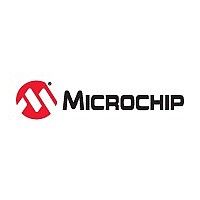PIC16F737-I/SP Microchip Technology Inc., PIC16F737-I/SP Datasheet - Page 171

PIC16F737-I/SP
Manufacturer Part Number
PIC16F737-I/SP
Description
28 PIN, 7 KB FLASH, 368 RAM, 25 I/O
Manufacturer
Microchip Technology Inc.
Datasheet
1.PIC16F737-ISP.pdf
(276 pages)
Specifications of PIC16F737-I/SP
A/d Inputs
5-Channel, 8-Bit
Cpu Speed
5 MIPS
Eeprom Memory
0 Bytes
Input Output
25
Interface
I2C/SPI/USART
Memory Type
Flash
Number Of Bits
8
Package Type
28-pin SPDIP
Programmable Memory
7K Bytes
Ram Size
192 Bytes
Speed
20 MHz
Timers
2-8-bit, 1-16-bit
Voltage, Range
2-5.5 V
Lead Free Status / Rohs Status
RoHS Compliant part
Electrostatic Device
- Current page: 171 of 276
- Download datasheet (6Mb)
15.0
These devices have a host of features intended to
maximize system reliability, minimize cost through elimi-
nation of external components, provide power-saving
operating modes and offer code protection:
• Reset
• Interrupts
• Watchdog Timer (WDT)
• Two-Speed Start-up
• Fail-Safe Clock Monitor
• Sleep
• Code Protection
• ID Locations
• In-Circuit Serial Programming
There are two timers that offer necessary delays on
power-up. One is the Oscillator Start-up Timer (OST),
intended to keep the chip in Reset until the crystal
oscillator is stable. The other is the Power-up Timer
(PWRT) which provides a fixed delay of 72 ms
(nominal) on power-up only. It is designed to keep the
part in Reset while the power supply stabilizes and is
enabled or disabled using a configuration bit. With
these two timers on-chip, most applications need no
external Reset circuitry.
2004 Microchip Technology Inc.
- Power-on Reset (POR)
- Power-up Timer (PWRT)
- Oscillator Start-up Timer (OST)
- Brown-out Reset (BOR)
- Low-Voltage Detect (LVD)
SPECIAL FEATURES OF
THE CPU
Sleep mode is designed to offer a very low-current
power-down mode. The user can wake-up from Sleep
through external Reset, Watchdog Timer wake-up or
through an interrupt.
Several oscillator options are also made available to
allow the part to fit the application. The RC oscillator
option saves system cost while the LP crystal option
saves power. Configuration bits are used to select the
desired oscillator mode.
Additional information on special features is available
in the “PICmicro
Manual” (DS33023).
15.1
The configuration bits can be programmed (read as ‘0’)
or left unprogrammed (read as ‘1’) to select various
device configurations. These bits are mapped in
program memory locations 2007h and 2008h.
The user will note that address 2007h is beyond the
user program memory space which can be accessed
only during programming.
Configuration Bits
®
Mid-Range MCU Family Reference
PIC16F7X7
DS30498C-page 169
Related parts for PIC16F737-I/SP
Image
Part Number
Description
Manufacturer
Datasheet
Request
R

Part Number:
Description:
MCU, 8-Bit, 4KW Flash, 368 RAM, 25 I/O, SOIC-28
Manufacturer:
Microchip Technology Inc.
Datasheet:

Part Number:
Description:
Manufacturer:
Microchip Technology Inc.
Datasheet:

Part Number:
Description:
28 PIN, 7 KB FLASH, 192 RAM, 22 I/O
Manufacturer:
Microchip Technology Inc.
Datasheet:

Part Number:
Description:
28 PIN, 7 KB FLASH, 192 RAM, 22 I/O
Manufacturer:
Microchip Technology Inc.
Datasheet:

Part Number:
Description:
IC, 8BIT MCU, PIC16F, 32MHZ, SOIC-18
Manufacturer:
Microchip Technology
Datasheet:

Part Number:
Description:
IC, 8BIT MCU, PIC16F, 32MHZ, SSOP-20
Manufacturer:
Microchip Technology
Datasheet:

Part Number:
Description:
IC, 8BIT MCU, PIC16F, 32MHZ, DIP-18
Manufacturer:
Microchip Technology
Datasheet:

Part Number:
Description:
IC, 8BIT MCU, PIC16F, 32MHZ, QFN-28
Manufacturer:
Microchip Technology
Datasheet:

Part Number:
Description:
IC, 8BIT MCU, PIC16F, 32MHZ, QFN-28
Manufacturer:
Microchip Technology
Datasheet:

Part Number:
Description:
IC, 8BIT MCU, PIC16F, 32MHZ, QFN-28
Manufacturer:
Microchip Technology
Datasheet:

Part Number:
Description:
IC, 8BIT MCU, PIC16F, 32MHZ, SSOP-20
Manufacturer:
Microchip Technology
Datasheet:

Part Number:
Description:
IC, 8BIT MCU, PIC16F, 20MHZ, DIP-40
Manufacturer:
Microchip Technology
Datasheet:

Part Number:
Description:
IC, 8BIT MCU, PIC16F, 32MHZ, QFN-28
Manufacturer:
Microchip Technology
Datasheet:

Part Number:
Description:
IC, 8BIT MCU, PIC16F, 20MHZ, MQFP-44
Manufacturer:
Microchip Technology
Datasheet:

Part Number:
Description:
IC, 8BIT MCU, PIC16F, 20MHZ, QFN-20
Manufacturer:
Microchip Technology
Datasheet:










